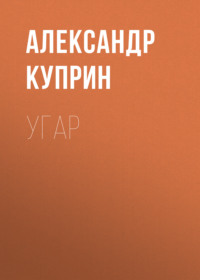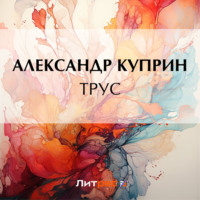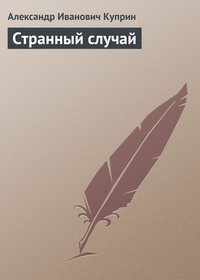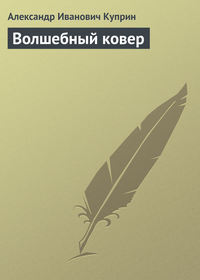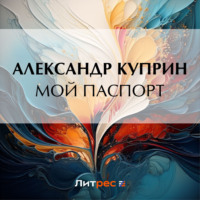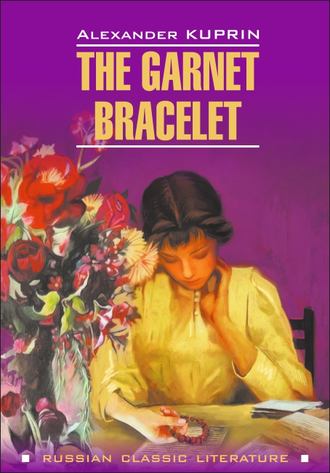
Полная версия
The Garnet Bracelet and other Stories / Гранатовый браслет и другие повести. Книга для чтения на английском языке
The hush that fell was broken by the jarring little nasal tenor of the priest, who chanted meekly, “Bless’d be the Lord, for ever and ever.”
“Amen,” the improvised choir responded, harmoniously enough.
The workmen – there were some three thousand of them – crossed themselves broadly, doing it simultaneously as they had greeted Kvashnin, bowed their heads, raised them again, and tossed back their hair. Bobrov could not help looking at them closely. Standing in the two front rows were staid stone-masons, all of them wearing white aprons, and nearly all tow-haired and red bearded; behind them were smelters and forge workers in wide, dark blouses styled after those worn by the French and British workmen, their faces grimy with iron dust which could not be washed off; among them appeared the hook-nosed faces of foreign ouvriers; still farther away, behind the smelters and forge workers, you could catch glimpses of limekiln workers, recognizable from afar by their faces, which seemed to be thickly powdered with flour, and by their inflamed, bloodshot eyes.
Whenever the choir chanted in loud unison, “Save Thy servants from calamity, О Lady!” all the three thousand people assiduously crossed themselves with a soft, monotonous rustle, and bowed deeply. Bobrov fancied that there was something elemental and powerful, and at the same time childish and touching, in that common prayer of the huge grey crowd. Next day the workmen would set about their hard twelve-hour toil. Who knew which of them was already doomed to pay for that toil with his life – to fall from a high scaffold, to be scorched with molten metal, or to be buried under a pile of broken stone or bricks? And was it by any chance this immutable decision of fate that they were thinking of as they made deep bows and tossed back their fair locks, while the choir prayed Our Lady to save her servants from calamity? And in whom but the Virgin could they trust, these big children with stout, simple hearts, these humble heroes who came out daily from their dank, cold mud-huts to carry out their habitual feat of patience and daring?
Such, or almost such, were the thoughts of Bobrov, who had an inclination for vast, poetic pictures; and although he had long since grown out of the habit of praying, a thrill of nervous excitement ran down his spine whenever the priest’s jarring, distant voice was succeeded by the harmonious response of the choir. There was something powerful, submissive, and self-sacrificing in the naive prayer of those simple toilers, who had come together from God knew what far-away regions, snatched from their homes for hard and perilous work.
The service was over. With a careless air Kvashnin threw a gold coin into the pit, but was unable to bend down with the little spade he held, and so Shelkovnikov did it for him. Then the group started for the blast-furnaces whose black towers rose on stone foundations.
The newly-built Fifth Furnace was going “full blast,” to use the technical jargon. A seething white-hot stream of molten slag sent blue sulphur flames darting about as it gushed from a hole pierced in the furnace, about thirty inches above the ground. It flowed down a shoot into ladles placed against the vertical base of the fur-mace, and there hardened into a thick greenish mass like barley sugar. The workmen standing on top of the furnace kept on feeding it with ore and coal, which went up every other minute in trolleys.
The priest sprinkled the furnace on all sides with holy water and hurried off timidly, with the stumbling gait of an old man. The foreman in charge of the furnace, a sinewy, black-faced old man, crossed himself and spat into his palms. His four assistants did the same. Then they picked up a long steel crow-bar, swung it back and forth for a long time and, with one big gasp, rammed it into the lowest part of the furnace. The crow-bar clanked against the clay plug. The onlookers shut their eyes in nervous expectation, and some of them stepped back. The five men struck for the second, third, and fourth time, and suddenly a dazzling-white jet of molten metal burst forth from where the crow-bar had struck. Then the foreman widened the hole by rotating the crow-bar, and the cast iron flowed sluggishly down a sand furrow, taking the colour of fiery ochre. Clusters of big shining stars came flying out of the hole, crackling and melting in the air. Flowing at a seemingly lazy pace, the metal sent out such an unbearable heat that the unaccustomed visitors kept on moving farther and farther back, shielding their faces with their hands.
From the blast-furnaces the engineers made for the blower department. Kvashnin had seen to it that the visiting shareholders got a full view of the enormous mill bustling with activity. He had calculated with absolute accuracy that these gentlemen would be overwhelmed by the wealth of new impressions, and would later report wonders to the general meeting which had sent them. And knowing very well the psychology of business men, he confidently looked forward to a new issue of stock, which would greatly profit him personally and which the general meeting had so far refused.
And the shareholders were overwhelmed, so much so that their heads ached and their knees trembled. In the blower shop, pale with excitement, they heard the air, forced into pipes by four vertical fifteen-foot pistons, rush through them with a roar that rocked the stone walls of the building. Along these massive iron pipes, which were about ten feet in circumference, the air passed through the hot-blast stoves, where burning gases heated it to a thousand degrees, and from there went into the blast-furnace, melting ore and coal with its hot breath. The engineer in charge of the blower department was giving explanations. He bent to the ear of one shareholder after another, and shouted at the top of his voice, straining till his lungs hurt, but the terrific din of the machinery drowned his words and it seemed as if he were just moving his lips, silently and strenuously.
Then Shelkovnikov led the visitors to the puddling-furnace shed, a tall building of such immense length that its far end looked like a barely visible small hole. Along one wall of the shed ran a stone platform with twenty puddling furnaces shaped like railway wagons without wheels. In these furnaces molten iron was mixed with ore and processed into steel, which flowed down pipes and filled high iron moulds – rather like bottomless cases with handles on top – and there hardened to puddles weighing each about three-quarters of a ton. The other side of the shed was laid with rails along which steam cranes moved up and down like obedient, agile animals, with tensile trunks, snorting, hissing, clanking. One of the cranes would seize a mould by the handle and raise it, and a dazzling red bar of steel would slip out. But before the bar could reach the floor, a workman would with extraordinary alacrity sling a wrist-thick chain round it. Another crane would hook the chain, waft away the bar, and put it down next to others on the platform attached to a third crane. The third crane would haul the load to the far end of the shed where a fourth crane, equipped with pincers instead of a hook, would lift the bars from the truck and lower them into the gas furnaces built under the floor. Lastly, a fifth crane would pull them, white with heat, out of the furnaces, put them one by one under a sharp-toothed wheel revolving on a horizontal axle at a terrific speed, and the huge steel bar would be halved in five seconds like a slab of butter. Each half would then go under the twenty-five thousand pound press of a steam hammer, which shingled it as easily as if it were wax. Workmen would at once grab and load the pieces on trolleys and push them away at a run, the red-hot iron sending a wave of glowing heat against all who came that way.
Shelkovnikov went on to show his visitors the rail-rolling mill. A huge bar of red-hot metal would pass through a series of machines, moving from one to another over rollers that were turning under the floor, with only their top parts showing. Squeezed between two steel cylinders revolving in opposite directions, it would force them apart, the rollers trembling with tension. Farther away was a machine with an even smaller space between its cylinders. As it passed through each machine the bar became thinner and longer; after running several times up and down the rail-mill it would take the shape of a red-hot rail, seventy feet long. In control of the complex operations of the fifteen machines was a single man who was posted above the steam engine, on a raised platform not unlike a ship’s bridge. He would pull a handle and all the cylinders and rollers would start to turn one way, then he would push it back and they would turn the other way. When the rail had been stretched to its final length a circular saw would cut it into three parts with a deafening scream, throwing up a myriad of golden sparks.
Now the group proceeded to the turnery where mostly wagon and locomotive wheels were finished. Leather transmission belts coming down from a stout steel shaft running the whole length of the ceiling set in motion two or three hundred machines of the most varied sizes and shapes. There were so many belts criss-crossing in all directions that they seemed like one tangled, vibrating network. The wheels of some of the machines were making twenty revolutions per second, while others were turning so slowly that you could hardly notice it. Steel, iron, and brass shavings thickly littered the floor in thin long spirals. Drilling machines filled the air with an unbearable screeching. The visitors were shown a nut-making machine – rather like two huge steel jaws munching steadily. Two workmen were busy feeding the end of a long red-hot rod into the machine, which bit off its tip regularly to spit out a completely finished nut.
When they left the turnery Shelkovnikov, who had been addressing his explanations exclusively to the shareholders, suggested that they should inspect the nine-hundred h.p. “Compound,” the mill’s pride. By then the gentlemen from Petersburg were sufficiently overwhelmed and exhausted by what they had already seen and heard. Every new impression, far from interesting them, wearied them still more. Their faces were red from the heat of the rail-mill, and their hands and clothes were sooty. They therefore accepted the manager’s invitation with apparent reluctance, and only because they had to maintain the prestige of those who had sent them.
The “Compound” was installed in a separate building, very neat and nice-looking, with bright windows and an inlaid floor. Despite its huge size the machine made hardly any noise. Two pistons, each about thirty feet long, moved smoothly and swiftly up and down their cylinders encased in wood. A wheel twenty feet in diameter, with twelve ropes gliding over it, was revolving just as noiselessly and swiftly. Its sweeping motion sent the hot, dry air rushing through the machine room in strong, regular gusts. The machine supplied power to the blowers and rolling mills and the machinery in the turnery.
Having inspected the “Compound,” the shareholders felt quite certain that their trials were at an end; but the tireless Shelkovnikov obligingly made a fresh suggestion.
“Now, gentlemen, I’ll show you the heart of the mill, its life-centre.”
He dragged rather than led them into the steam-boiler house. But after all that they had seen the “heart of the mill” – twelve cylindrical boilers each thirty-five feet in length and ten feet in height – failed to impress the weary shareholders much. Their thoughts had long been centring round the dinner awaiting them, and they no longer asked questions but nodded with absent-minded indifference at whatever explanations Shelkovnikov gave. When he had finished they sighed with obvious relief and heartily shook hands with him.
Bobrov was now the only one left near the boilers. Standing at the edge of the deep, half-dark stone pit where the furnaces were, he looked for a long time down on the hard work of six men, bare to the waist. It was their duty to stoke the furnaces with coal day and night, without let-up. Now and again the round” iron doors opened with a clang, and Bobrov could see the dazzling white flames roaring and raging in the furnaces. Now and again the half-naked figures of the workmen, withered by fire and black with the coal dust ingrained in their skin, bent down, all the muscles and vertebrae standing out on their backs. Now and again their lean, wiry hands scooped up a shovelful of coal and thrust it into the blazing orifice with a swift, deft movement. Another two workmen, standing above, were kept as busy shovelling down fresh coal from the huge black piles round the boiler house. There was something depressing and inhuman, Bobrov thought, in the stokers’ endless work. It seemed as if a supernatural power had chained them for life to those yawning maws and they must, under penalty of a terrible death, tirelessly feed the insatiable, gluttonous monster.
“Watching them fattening your Moloch, are you?” said a cheerful, good-humoured voice behind Bobrov’s back.
Bobrov started and all but fell into the pit. He was staggered by the unexpected coincidence of the doctor’s facetious exclamation with his own thoughts. For a long time after he regained his composure he could not stop wondering at the strange coincidence. He was always interested and mystified to hear someone beside him suddenly bring up what he had just been reading or thinking about.
“Did I frighten you, old chap?” said the doctor, looking closely at Bobrov. “I’m sorry.”
“Yes – a little. You came up so quietly – it was quite a surprise.”
“Andrei Ilyich, you’d better look after your nerves. They’re no good at all. Take my advice: ask for leave of absence and go somewhere abroad. Why worry yourself here? Enjoy six months or so of easy life; drink good wine, ride a lot, try l’amour.”
The doctor walked to the edge of the furnace pit and glanced down.
“A regular inferno!” he cried. “How much would those little samovars weigh? Close to fifteen tons each, I should think?”
“A bit more than that. Upwards of twenty-five tons.”
“Oh! And suppose it occurred to one of them to – er – pop? It would make a fine sight, wouldn’t it?”
“It certainly would, doctor. All these buildings would probably be razed to the ground.”
Goldberg shook his head and whistled significantly.
“But what might cause such a thing?”
“Oh, there may be many causes; but more often than not this is what happens: when there’s very little water left in the boiler, its walls grow hotter and hotter, till they’re almost red-hot. If you let water in at a moment like that an enormous quantity of steam would form at once, the walls wouldn’t be able to stand the pressure, and the boiler would blow up.”
“So you could do it on purpose?”
“Any time you wish. Would you like to try? When the water runs quite low in the gauge, you only have to turn that small round lever. That’s all there is to it.”
Bobrov was jesting, but his tone was strangely earnest, and there was a stern, unhappy look in his eyes.
“Damn it,” the doctor said to himself, “he’s a fine chap all right, but cranky just the same.”
“Why didn’t you go to the dinner, Andrei Ilyich?” he asked, stepping back from the pit. “You should at least see what a winter garden they’ve made of the lab. And the spread – you’d be amazed.”
“To hell with it all! I can’t bear those engineers’ dinners.” Bobrov made a grimace. “Bragging, yelling, fawning on each other, and then those invariable drunken toasts when the speakers spill their wine on themselves or their neighbours. Disgusting!”
“Yes, you’re quite right.” The doctor laughed. “I saw the beginning. Kvashnin was splendid. ‘Gentlemen! he said, ‘the engineer’s calling is a lofty and important one. Along with railways, blast-furnaces, and mines he carries into the remote corners of the country the seeds of education, the flowers of civilization, and – ’ He mentioned some sort of fruits, but I don’t remember which. A super-swindler if there ever was one! ‘So let us rally, gentlemen,’ he said, ‘and bear high the sacred banner of our beneficent art!’ He got furious applause, of course.”
They walked on a few paces in silence. Suddenly a shadow came over the doctor’s face.
“Beneficent art, is it!” he said angrily. “And the workmen’s barracks are built of chips. No end of sick people, children dying like flies. That’s what they call seeds of education! They are in for a nice surprise when typhoid fever breaks loose in Ivankovo.”
“But, doctor! Do you mean to say there’ve been cases already? It would be dreadful with their barracks crammed the way they are.”
The doctor stopped to catch his breath.
“What did you think?” he said with bitterness. “Two men were brought in yesterday. One of them died this morning, and the other’s sure to die tonight, if he hasn’t died yet. And we have neither medicines, beds, nor skilled nurses. Just wait, they’ll pay for it yet!” he added angrily, shaking his fist at someone invisible.
VIII
Busy-bodies had begun to wag their tongues. Even before Kvashnin arrived there were so many piquant stories bandied about the mill that now no one doubted the real motive of his sudden intimacy with the Zinenko family. The ladies spoke about it with ambiguous smiles and the men, talking among themselves, called a spade a spade with frank cynicism. But nobody knew anything for certain. Everyone was agog for a spicy scandal.
The gossip was not wholly groundless. After paying a visit to the Zinenko family Kvashnin began to spend all his evenings with them. About eleven o’clock every morning, his fine troika of greys would pull up at the Shepetovka estate, and the driver would invariably announce, “My master begs the lady and the young ladies to have breakfast with him.” No other people were invited to those breakfasts. The food was prepared by a French cook whom Kvashnin always took with him on his frequent trips, even when he went abroad.
Kvashnin’s attentions to his new acquaintances were of a most peculiar nature. Towards the five girls he at once assumed the blunt manner of a genial unmarried uncle. In three days he was calling them by their diminutive names, to which he added their patronymic; as for the youngest, Kasya, he often took her by the plump, dimpled chin and teased her by calling her a “baby” and a “chick,” which made her blush to tears although she did not protest.
Anna Afanasyevna reproached him with playful querulousness, saying that he would completely spoil her girls. Indeed, no sooner did any one of them express a fleeting wish than it was fulfilled. Hardly did Maka mention, quite innocently, that she would like to learn bicycle-riding when, the very next day, a messenger brought from Kharkov an excellent bicycle, which must have cost no less than three hundred rubles. He lost ten pounds of sweets to Beta, with whom he made a bet over some trifle, and for Kasya[3], as a result of another bet, he bought a brooch set with a coral, an amethyst, a sapphire, and a jasper, indicating the letters of her name.
Once he heard that Nina was fond of riding. Two days after, there was brought to her an English thoroughbred mare, perfectly broken in for lady riders. The young ladies were fascinated by this kind fairy who could guess, and at once fulfil, their every whim. Anna Afanasyevna had a vague feeling that there was something improper about this generosity, but she lacked both the courage and the tact to make that clear to Kvashnin in a discreet manner. Whenever she obsequiously reprimanded him, he would dismiss the matter with a wave of his hand, saying in his rough, firm voice, “It’s all right, my dear, stop worrying about trifles.”
Nevertheless, he did not show preference for any one of her daughters but tried to please them all alike, and unceremoniously made sport of all of them. The young men who had once called at the house had obligingly disappeared, but Svezhevsky had become a habitue, whereas formerly he had called no more than twice or three times in all. No one had asked him to come – he came of his own accord, as if at some mysterious invitation, and at once managed to become indispensable to all the members of the family.
However, a little incident preceded his appearance in the Zinenko house. About five months ago he had let fall among his colleagues that he dreamt of becoming a millionaire some day and was sure he would by the time he was forty.
“But how?” they had asked him.
Svezhevsky had tittered and answered, rubbing his moist hands mysteriously, “All roads lead to Rome.”
He felt intuitively that the situation at the Shepetovka estate was shaping most favourably for his future career. Anyway, he might be of service to his all-powerful superior. So he staked his all and boldly thrust himself into Kvashnin’s presence with his servile titter. He made advances to him as a gay pup might to a ferocious mastiff, both his face and his voice suggesting his constant readiness to do anything, however dirty, at a wink from Kvashnin.
Kviashnin did not mind it. He, who used to sack factory directors and managers without bothering to give the reason, silently put up with the presence of a Svezhevsky. There must be an important service afoot, and the future millionaire was eagerly biding his time.
Passed on by word of mouth, the rumour reached Bobrov’s ear. He was not surprised, for he had formed a firm and accurate opinion of the Zinenko family. The only thing which vexed him was that the gossip was bound to brush Nina with its filthy tail. After the talk at the station, the girl had become dearer to him than ever. To him alone she had trustingly revealed her soul, a soul that was beautiful even in its vacillation and weakness. Everybody else knew only her costume and appearance, he thought. Jealousy – with its cynical distrust, with the constantly piqued pride attending it, with its pettiness and coarseness – was foreign to his trusting and delicate nature.
Bobrov had never yet known the warmth of genuine, deep woman’s love. He was too shy and diffident to take from life what was perhaps his due. No wonder that his heart had rushed joyfully out to meet the new, strong feeling.
Throughout the last few days he had been under the spell of the talk they had had at the station. He recalled it again and again in minutest detail, each time seeing a deeper meaning in Nina’s words. Every morning he woke up with a vague feeling that something big and joyful had entered his soul, something that held out hopes of great felicity.
He was irresistibly drawn to the Zinenkos’; he wanted once more to make sure of his happiness, once more to hear from Nina those half-confessions – now timid, now naively bold. But he was restrained by Kvashnin’s presence, and he tried to set his mind at ease by telling himself that in no circumstances could Kvashnin stay in Ivankovo for more than a fortnight.
By a lucky chance he saw Nina before Kvashnin left. It happened on a Sunday, three days after the ceremony of blowing in the blast-furnace. Bobrov was riding on Fairway down a broad, hard-beaten road leading from the mill to the station. It was about two o’clock, and the day was cool and cloudless. Fairway was going along at a brisk pace, pricking up his ears and tossing his shaggy head. At a curve near a warehouse, Bobrov saw a lady in riding-habit coming downhill on a large bay, followed by a rider on a small white Kirghiz horse. Soon he recognized her as Nina wearing a long, flowing dark green skirt, yellow gauntlets, and a low, glossy top hat. She was sitting in the saddle with a confident grace. The slim English mare raised its slender legs high as it carried her along at a round, springy trot, its neck arched into a steep curve. Nina’s companion, Svezhevsky, was lagging far behind; working his elbows, jerking and bouncing, he was trying to catch the dangling stirrup with the toe of his boot.
As she sighted Bobrov Nina broke her mount into a gallop. Coming alongside Bobrov, she reined in the horse abruptly, and it began to fidget, dilating its fine wide nostrils, and fretting loudly at the bit which dripped lather. Nina’s face was flushed from the ride, and her hair, which had slipped out of the hat at the temples, fell back in long, thin curls.
“Where did you get such a beauty?” asked Bobrov, when he had at last managed to pull up the prancing Fairway and, bending forward in the saddle, squeeze Nina’s fingertips.





